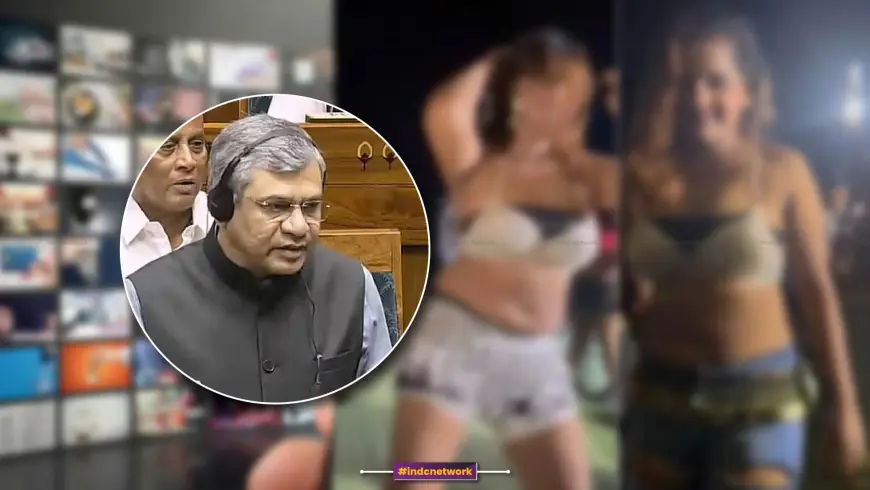Strictness on vulgar content: Ashwini Vaishnav said – law is necessary to protect culture
Union Minister Ashwini Vaishnav expressed concern over the growing problem of vulgar content on social media. He said that there is a need for strict laws and said that this type of content is having an adverse effect on Indian culture. On a question asked by Arun Govil in Parliament, Vaishnav clarified the limitations of the existing system and the need for strict laws.

INDC Network : New Delhi : Strictly on vulgar content: Ashwini Vaishnav said - Law is necessary to protect culture
Demand for strict laws on vulgar content: Vaishnav's big statement
Union Information and Broadcasting Minister Ashwini Vaishnav expressed the need to make strict laws to prevent obscene and inappropriate content on social media. He said that the culture of the countries where such content comes from is very different from the Indian culture. That is why special laws are needed to control this problem in India.
The discussion started with the question of Arun Govil
This statement was made during the Parliament session, when Lok Sabha MP and famous actor Arun Govil questioned the growing influence of vulgar content on social media and the existing mechanisms of the government. He asked what steps the government is taking to protect the youth from such content and prevent it.
In his reply, Vaishnav said that "editorial check is over in the age of social media. Earlier, the content published in the media was checked, but today content is being circulated on social media without any control. It includes vulgar and The growing influence of inappropriate content is having a negative impact on the youth."
OTT Self Regulation Code: What is the existing mechanism?
In 2020, India's leading OTT platforms jointly created a self-regulation code. Under this, 15 OTT platforms like Netflix, Woot etc. agreed that:
- Content that offends national sentiments will not be shown.
- Child pornography and content promoting terrorism will be prohibited.
- No content that hurts religious sentiments will be shown.
- Content prohibited by the court will not be broadcast.
However, due to many controversies and objections, this self-regulation code was not considered sufficient. The government believes that this mechanism cannot completely solve the problem.
Supreme Court verdict: Strict guidelines on child pornography
The Supreme Court recently took a strict stand in a case related to child pornography. The court clarified that viewing and downloading child pornography also falls under the category of offence.
A bench headed by CJI DY Chandrachud said that "storage of such content and non-removal of the same is indicative of intent to broadcast." The court suggested the central government to change the word 'child pornography' to 'child sexually exploitative and abusive material'.
Existing laws related to obscenity in India
India has several laws to regulate obscene and vulgar content, including:
- Information Technology Act 2000 :
- 3 years imprisonment and fine up to Rs 5 lakh for making, publishing and circulating porn videos under section 67 and 67A.
- Section-292, 293, 500, 506 of IPC :
- Provision of punishment for sale, transmission or publication of obscene material.
- POCSO Act :
- Strict rules to prevent sexual harassment and exploitation of children.
Tree of Government: Need for Consensus and Strict Laws
Vaishnav said in the Parliament that "consent of all parties is necessary to make a strict law on the issue of vulgar content." He emphasized that the solution to this problem cannot depend on the government alone. Society and related organizations will also have to participate in it.
Social Media: Freedom or Unregulated Platform?
On the one hand, social media is a powerful tool for freedom of the press, but its unregulated nature is also causing problems. Vaishnav called it "uncontrolled expression".
He said, "The use of freedom on social media should be accompanied by responsibility. It is important that companies control their own content and cooperate with the government."
Synergy of technology and law
Governments can combine technical measures and strict laws to prevent vulgar content on digital platforms. It is possible to control this problem with the help of artificial intelligence and moderation tools.
What's Your Reaction?














































































































































































